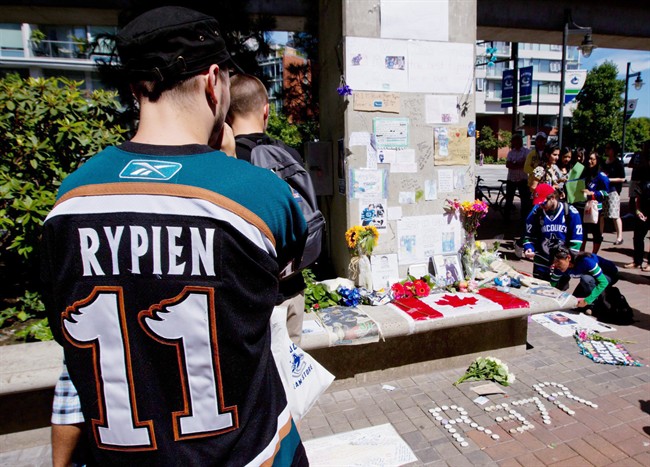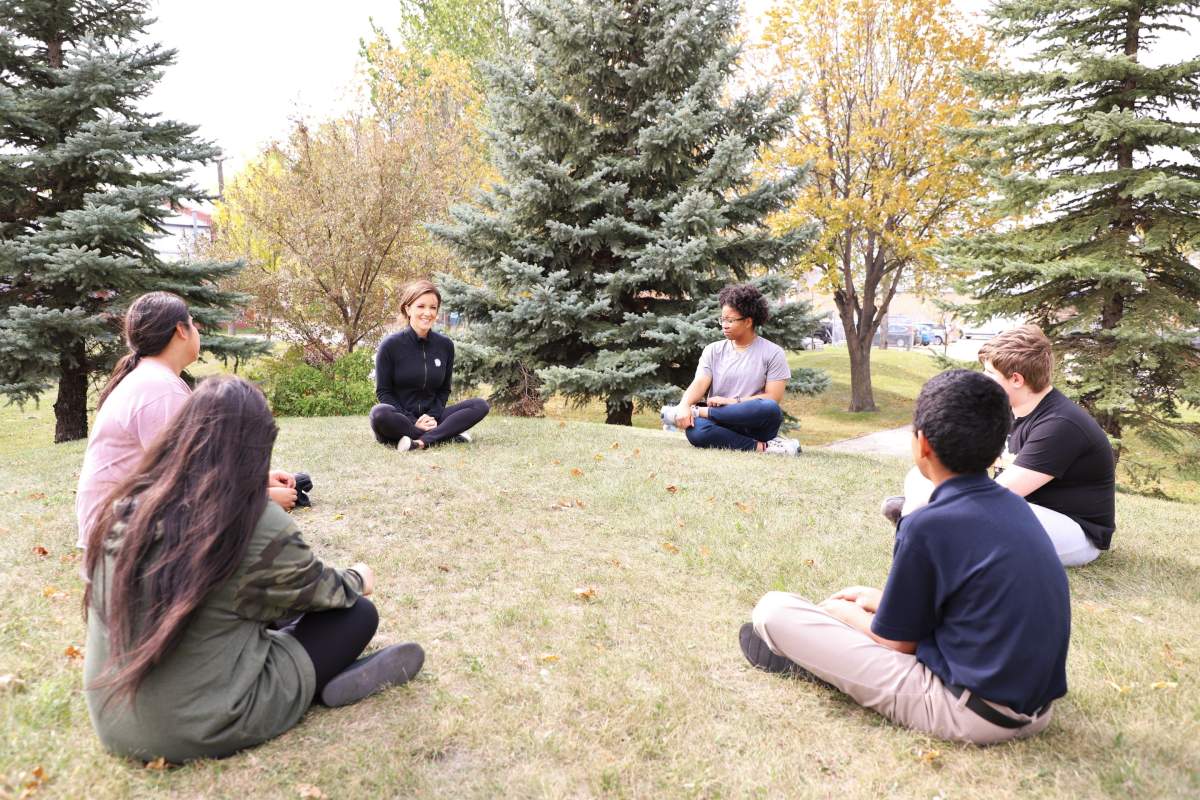A project bringing mental health education to students in the wake of Winnipeg Jets forward Rick Rypien’s death is finding itself busier than ever helping kids and teachers deal with the stresses brought on by COVID-19.

But the True North Youth Foundation’s Project 11 has also needed to adapt, turning to technology in lieu of in-person visits to make sure their work continues through school closures and public health restrictions.
“We’ve seen so many students with anxiety,” says Suzi Friesen, director of educational programs with the True North Youth Foundation.
“Whether it’s the loss of not being able to see their friends every day, missing their teachers, having to adapt to online learning. There are just a lot of students still adjusting to all of the changes, understandably so.”
Project 11 was started in 2013 in honour of Rypien, a former Manitoba Moose and Vancouver Canucks player who died by suicide at age 27 in 2011, just months before he was to start playing for the Jets.
The project rolled out for students in grades 5 and 6 the following year and has since grown to include Kindergarten classes up to Grade 8. A pilot program was launched for high school students this year, and French lessons have been added for middle years’ students.
The project’s curriculum includes wellness activities, educational supports and supplemental videos that focus on a variety of age-appropriate areas of wellness.
Friesen says the demand for the free online program skyrocketed when the first cases of COVID-19 were reported in Manitoba and the province moved schools to remote learning this spring.

She says some 600 teachers signed up for the project’s virtual training in May and June alone.

Get weekly health news
Luckily, she says, much of the project’s resources — lesson plans, workshops and hundreds of videos — were already available online when the pandemic hit.
“There was a demand for online resources that were ready to go that are addressing the real, raw feelings that the students are feeling,” she said.
“It was nice to be able to give access and training right away.”
Friesen says plans to send more support and training to teachers and students in remote northern Manitoba First Nations this year have been postponed by COVID-19, but USB sticks loaded with lesson plans and videos have been sent up to the communities in the meantime.
The project has also created a new podcast to help expand their reach during the pandemic.

Episodes have so far included interviews with players, coaches, other athletes and health experts, and there’s even been an appearance from Manitoba’s chief nursing officer, Lanette Siragusa.
True North Sports & Entertainment’s latest report to the community, published this week, says Project 11 has also worked to make many of their curriculum videos more broadly available online to help families during the pandemic.
Numbers from the report show the project has reached some 48,950 students at 415 schools across the province and says 2,227 Manitoba teachers have been trained. Friesen says those numbers are pre-pandemic, and the program has now reached more than 60,000 Manitoba students.
Friesen said the program has also spread to provinces outside Manitoba and around the world, with teachers in Australia recently taking the training too.

“It’s really created a nice common language for kids to problem solve or even express their feelings or emotions,” she said of the growing project.
Jets assistant general manager and director of hockey operations Craig Heisinger, who was close to Rypien and helped to get Project 11 started, said the hockey player would be proud of the work being done in his name.
“I think if Rick was here now he’d be really proud of his legacy and be smiling ear to ear,” he told Global News.
“He wanted kids to know they weren’t alone and that there were ways to help with some of their obstacles.”
Project 11 is funded mainly through money made through 50/50 draws at games, but with games on hold during the pandemic, donations can also be made online.
Educators interested in applying for the free Project 11 program can find more information at projecteleven.ca.
If you or someone you know is struggling with mental health, resources are available here.
Help specific to younger individuals via Kids Help Phone is available here.

Questions about COVID-19? Here are some things you need to know:
Symptoms can include fever, cough and difficulty breathing — very similar to a cold or flu. Some people can develop a more severe illness. People most at risk of this include older adults and people with severe chronic medical conditions like heart, lung or kidney disease. If you develop symptoms, contact public health authorities.
To prevent the virus from spreading, experts recommend frequent handwashing and coughing into your sleeve. They also recommend minimizing contact with others, staying home as much as possible and maintaining a distance of two metres from other people if you go out. In situations where you can’t keep a safe distance from others, public health officials recommend the use of a non-medical face mask or covering to prevent spreading the respiratory droplets that can carry the virus. In some provinces and municipalities across the country, masks or face coverings are now mandatory in indoor public spaces.
For full COVID-19 coverage from Global News, click here.





Comments
Want to discuss? Please read our Commenting Policy first.